Description
Financial experts in the West suggest that diversified business groups–or affiliated companies under one parent–in emerging markets should break up. Dismantling these mammoth conglomerates could reduce the debt and inefficiencies that some of them incur; that logic is based on the success that companies in advanced economies had when they unbundled their assets in the 1980s. But the authors argue that breaking up business groups such as the Korean chaebol and India’s Tata Group is premature. Emerging economies lack a soft infrastructure–the banks, business schools, corporate governance processes, and so on that are the foundation of economic growth. And building such an infrastructure takes time. Many business groups in emerging markets make up for the absence or weakness of market intermediaries by filling in themselves. For instance, they’re venture capitalists when they use funds from one business group affiliate to fund a new one. They’re labor market substitutes when business-group headquarters creates management training programs based on the knowledge and experience of managers across several business affiliates. Instead of breaking up the conglomerates now, governments should start the long-term development of market institutions for finance, labor, and goods and services. In the meantime, business groups should strive to improve the way they substitute for those market institutions. The authors suggest several Western business tools and models that business groups can use to boost their role as market intermediaries and to prepare for the eventual development of those institutions.
Visited 10670 times , 1 Visits today

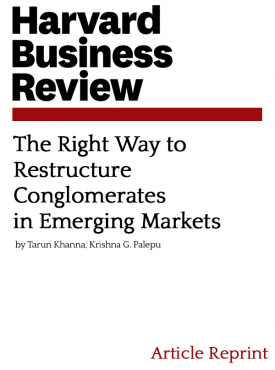

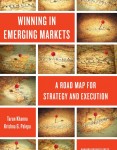

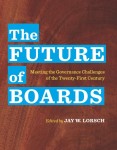
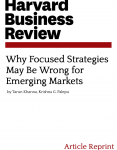
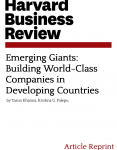
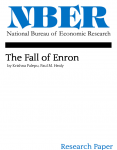
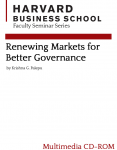
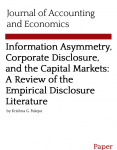
Hello Web Admin, I appreciate this nice listing!